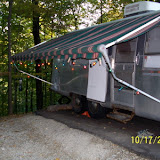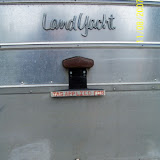 I've decided not to go to Chicago today. Icy weather here is going to give way to snow, and there must be more even more north of here.
I've decided not to go to Chicago today. Icy weather here is going to give way to snow, and there must be more even more north of here.I'm reading Winter Hours: Prose, Prose Poems, and Poems, by Mary Oliver, Mariner: 1999. I love this poet. I also enjoy essays by writers about their craft. Mary Oliver is not much for self-disclosure in the direct way that we ask for it in therapy and pastoral care.
My colleague in CPE told me about her interview. Two men and a woman on the interview panel worked her over in that way of guerilla gonzo pseudo-psychoanalytic probing into the wounds of one's life. I have this interview to look forward to, also. So, this morning, I am thinking about self-disclosure.
I wonder sometimes if I had had a "normal" widowing*, if I would not have had such a long grief, with spells of -- torrents of -- self-disclosing pain, injury, wounding, anger, rage, self-pity? -- even as recently as this month. I'll never know. Maybe I can be an illustration for "complicated grief."
This interview will come. How shall I prepare? Everyone says, "Just be yourself." Indeed. I'm thinking it feels like a game. I've lived too long and trained a lot in the psychological strategies used in the service of ministry. One time, I refused to play by the rules of the game, withdrew from the game, and found a better pub in which to toss the darts, better friends to play with, but it did cost me some time and got me a reputation as one who now has "unfinished business" in the old place. Maybe.
Mary Oliver said, on xii in the preface to Winter Hours:
I have felt all my life that I was wise, and tasteful too, to speak very little about myself -- to deflect the curiosity in the personal self that descends upon writers, especially in this country and at this time, from both casual and avid readers. ... I am only too aware of the ways in which inclination and supposition will fill whatever spaces in this world, or a life, are left vacant.
Yes, Ma'am -- the universe abhors a vacuum, and transference is real. People will fill those gaps, as they will.
She goes on to say that, in this book, she is going to do a bit, tiny bit, more disclosure because she realizes she is getting older and some will claim to know her, so she wishes to [my paraphrase here] have some control over filling in some of the gaps, excepting the "important and proper secrets of a heart."
Wise and tasteful. I have been neither, often. Not that millions will read my writing. But, perhaps more importantly, people who know me well, or think they do, often read these thoughts. I am chastened by this thought, sometimes. Still, this sense of others reading over my shoulder has not stopped me from saying some things that might offend. I've never been one to say, "Oh, *&^% 'em," as Reb regularly responded to my reports of hurtful things, mindless things coming from ones I thought better of. I've not been one to take a "live and let live" attitude about some matters, believing that I could be persuasive and change someone's mind. Arrogant?
I have strolled into strange pubs and joined games in progress, hurling my points toward any board that I faced. Maybe I can be more selective now.
As I approach this interview, I realize I feel curious and interested about what kinds of questions may come, what darts will find a way to my center; will I cry when they do? Will I let anger show? Will I go in with a good humor, tell it slant? Develop an angle of delivery that will answer with a clever twist?
Look -- I just want to get on with this next phase of the learning, hazing and all. Earning a Ph.D. should be good practice, already. Somebody hand me a Guinness, I need to play my way through. It's only a game.
*a "normal" widowing: nothing the freedom to marry would not fix

